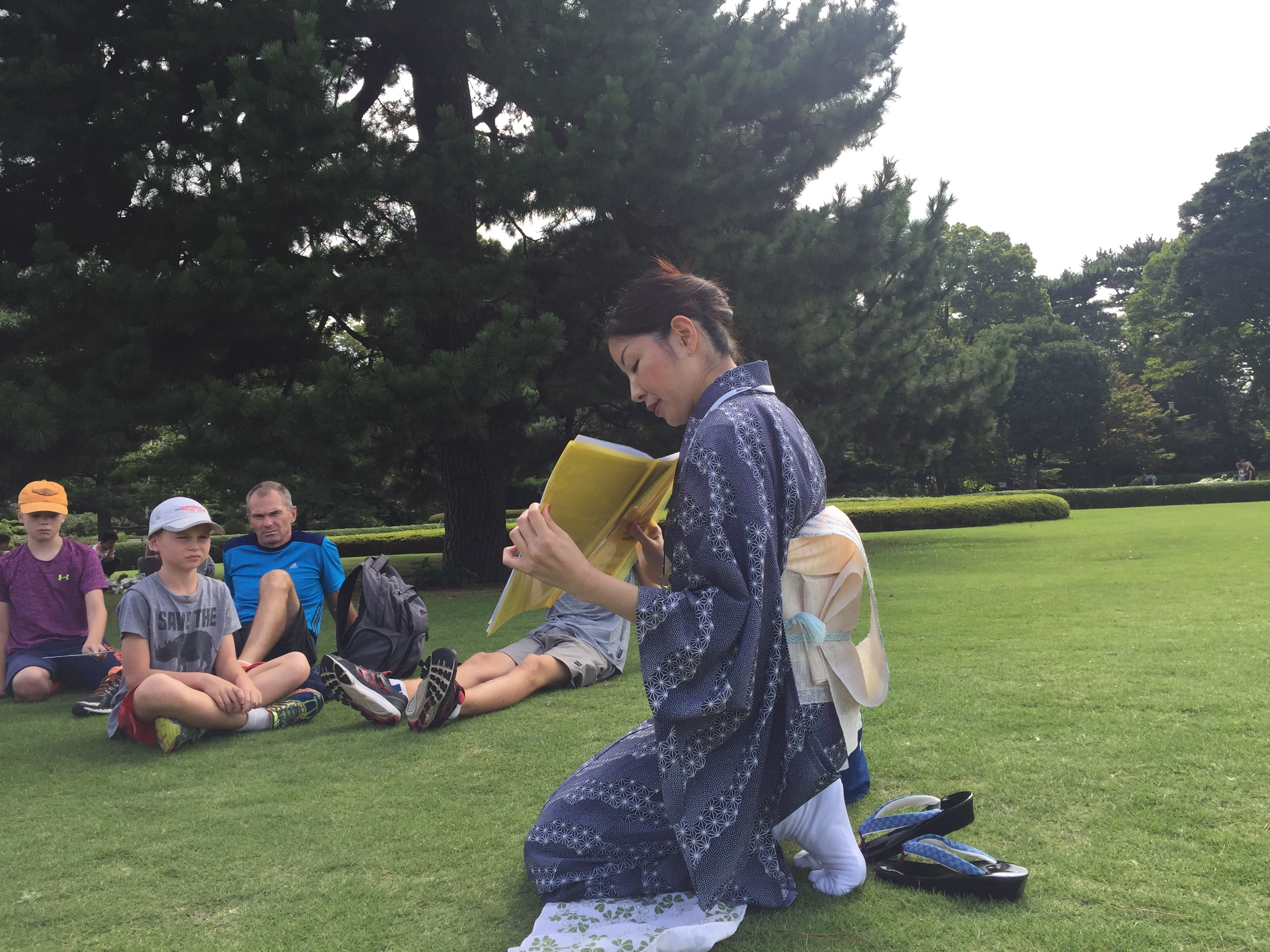Thank you for joining the tour. On that day we welcomed 35 people from USA, Canada Australia, Ireland, UK, Italy, France, Germany, China, Taiwan, Hong Kong, Singapore, Malaysia, Vietnam, and Columbia. We divided into 6 groups.
It was a very cold day despite middle March. In the East Garden, Ume (Plum) flowers were almost fading away.

Instead, red Kanzakura (Colder-climate suited cherryblossoms) were in full bloom.
The flowers entertained us in the period between Ume and white-pink cherryblossom.
Many of our guests want to know how the Tokugawa Shoguns (1603-1868), who were the former owner of the East Garden and built the castle on it, successfully governed, unified the nation and protected national sovereignty without having internal wars and never being colonised by other nations. There were 3 major policies to note.
First one is alternate visit to the Shogun. All the province leaders called daimyo had to visit Shogun to pay respect once every 2 years. Their wives and children were forced to live in the city as hostages, so they had to do that.
Second one is Seclusion. It was a policy to limit access to Japanese ports for foreign traders. Since Seclusion had implemented, no foreign nations except China, Korea and Dutch were allowed to enter and trade with Japan. That policy had been done until 1850’s when US ships came.
Last one is Ban on Christianity. Since Spanish Catholic priest named Francisco Xavier arrived in Japan, 1549, Christianity had spread but Tokugawa Shoguns feared Christianity was used as catalyst for coloninal rule. Then all the Christians at that time were ordered to renounce their faith. Usually they were forced to stamp on fumie (carved Jesus Christ picture on the plate). If they refused to do so, they were tortured to death. That part of the history was novelised by Japanese Christian novelist ENDO Shusaku and recently made into film by Hollywood, which will be shown later this year. The title of the story is “Silence.” A story of an European priest who was captured and ordered to denounce his religious faith to save his followers. Maybe one of the most brutal Christian persecutions in history.
Such policies are way in the past. Feudal period is over. Today Japan is one of the most democratic nations in the world. Political decisions are made by representatives elected by people. Freedom of expression and speech is protected by the constitution.
A day before the tour, a lot of people gathered in front of prime minister’s office to call for termination of nuclear power generation. It was 5 Years On from the Great East Japan earthquake and Fukushima power plant accident.
Two recently re-operated nuclear power plants in Fukui prefecture were shut down on 10 of March, a day before the fifth anniversary by the court order after the citizens filed lawsuit against the power company. Only two out of existing 50 plants are re-operated at present because of strong opposition from public.
The sovereignty rests with people, not Shogun nor Emperor. Emperor is noted as symbol of nation in the current constitution.
Likewise, freedom of religion is protected by the constitution. There are many Christian churches in Japan.
Although Christians account for less than 1% of the population, many Japanese celebrate Christmas and hold wedding at Chapel. We acquire many aspects of western culture to our life since late 19th century.
This nation is open to the world and trade with various nations. That is why we can hold such wonderful tour welcoming many people from all over the world.
We appreciate Tokugawa Shoguns who established this unified nation as well as current democracy and openess to the world.
We welome anybody regardless of their religion, nationality, race, ethnicity, culture and thoughts. Diversity is what all the people on earth have to appreciate. Please come and join us!














